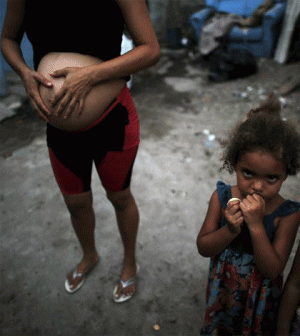- Mothering in a Fractured TimePosted 5 hours ago
- Beneath the Surface: Revealing Life’s Goals nurtured from a Spiritual SeedPosted 3 days ago
- How We Kept Marital Peace while Traveling the World with Our KidsPosted 2 weeks ago
- How I Coped with Feeling Lost in a Changing SocietyPosted 2 weeks ago
- The Unexpected Liberation of a Butt DialPosted 1 month ago
- Why is France making abortion a constitutional right?Posted 2 months ago
Study says 67 million unwanted pregnancies could be avoided each year

By Anna Pujol-Mazzini | Thomson Reuters Foundation
If women had reliable contraceptives, there would be a sharp drop in the number of unwanted pregnancies.
LONDON, June 29 – More than 200 million women who do not want to get pregnant use no contraceptives at all or rely on risky methods to avoid pregnancy, often due to a lack of access, money or information in the poor countries they call home, a study found on Thursday.
The report said if the women had reliable contraceptives, there would be a sharp drop in the number of unwanted pregnancies, down from about 89 million a year to 22 million.
“Meeting the sexual and reproductive health needs of women in developing regions is an achievable and affordable goal,” said Ann Starrs, whose Guttmacher Institute produced the report.
Many women in Africa, Asia and Latin America lack the resources and facilities to get hold of modern contraceptives, according to the U.S.-based research group.
Additionally, when they do get pregnant, millions of women do not receive the care they need, the report added.
Here are some facts about contraception and maternal health in the world’s poor regions:
- 214 million women who want to avoid pregnancy are not using a modern contraceptive method. This includes condoms, pills and implants. Of these, 155 million use nothing, while the rest use unreliable birth control such as withdrawal.
- Almost half of pregnancies in the developing world are unintended, coming too soon or to women who do not want babies.
- Sub-Saharan Africa and Southern Asia are home to almost 60 percent of the women who want to avoid pregnancy but cannot access proper contraception.
- Globally, 21.6 million women have unsafe abortions each year, nine out of 10 of which take place in developing countries, according the World Health Organization.
- Many women do not use contraceptives for fear of side effects or because they do not think they are at risk of getting pregnant if they don’t have sex often.
- Some 35 million women giving birth in 2017 will not deliver in a health facility, according to the Institute.
- In 2017, an estimated 300,000 women in poor countries will die from pregnancy-related causes and 2.7 million babies will die in the first month of life, the report said.
(Sources: Guttmacher Institute, Reuters, Thomson Reuters Foundation) (Reporting by Anna Pujol-Mazzini @annapmzn, Editing by Lyndsay Griffiths. Please credit the Thomson Reuters Foundation, the charitable arm of Thomson Reuters that covers humanitarian news, women’s rights, trafficking, property rights, climate change and resilience. Visit http://news.trust.org)







